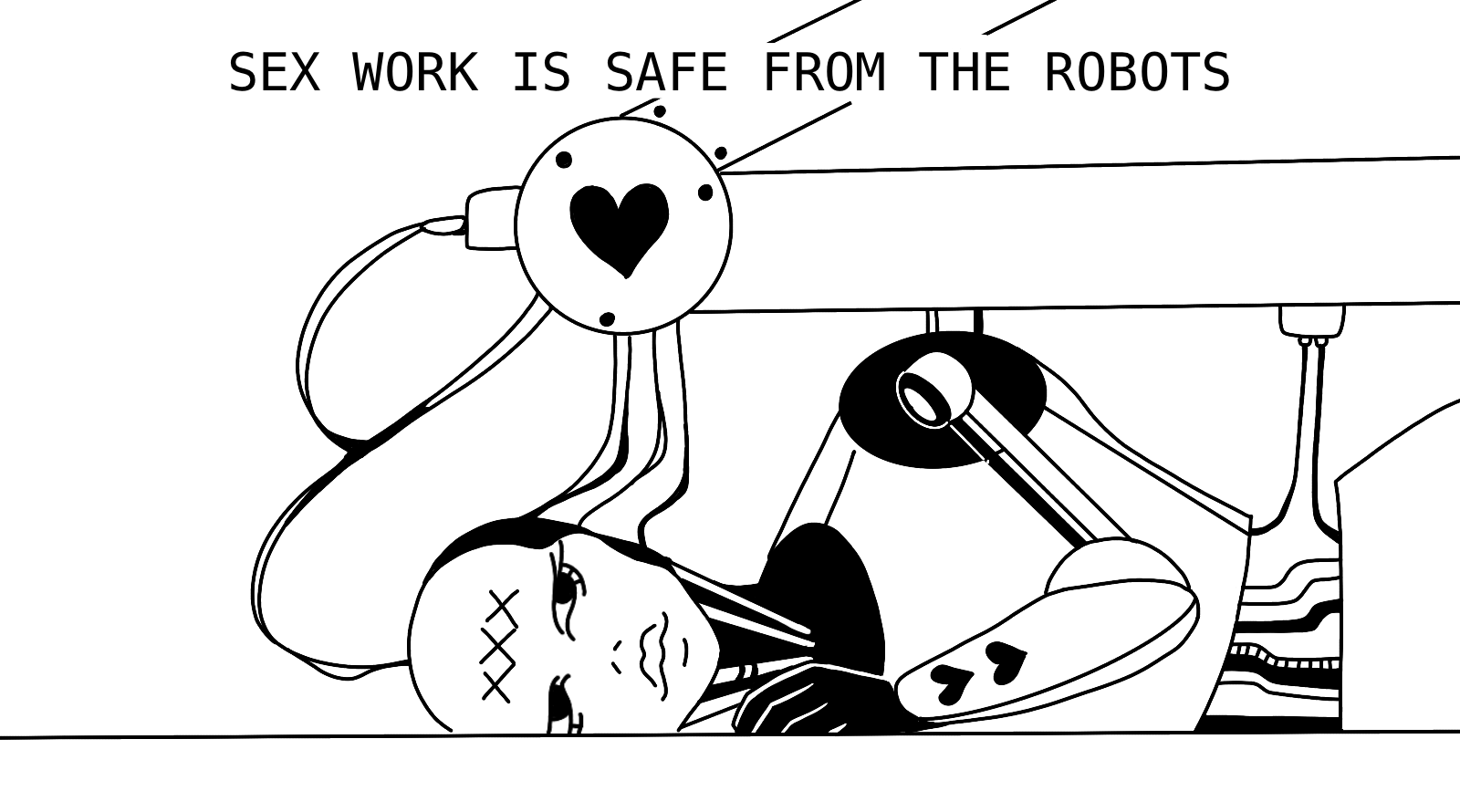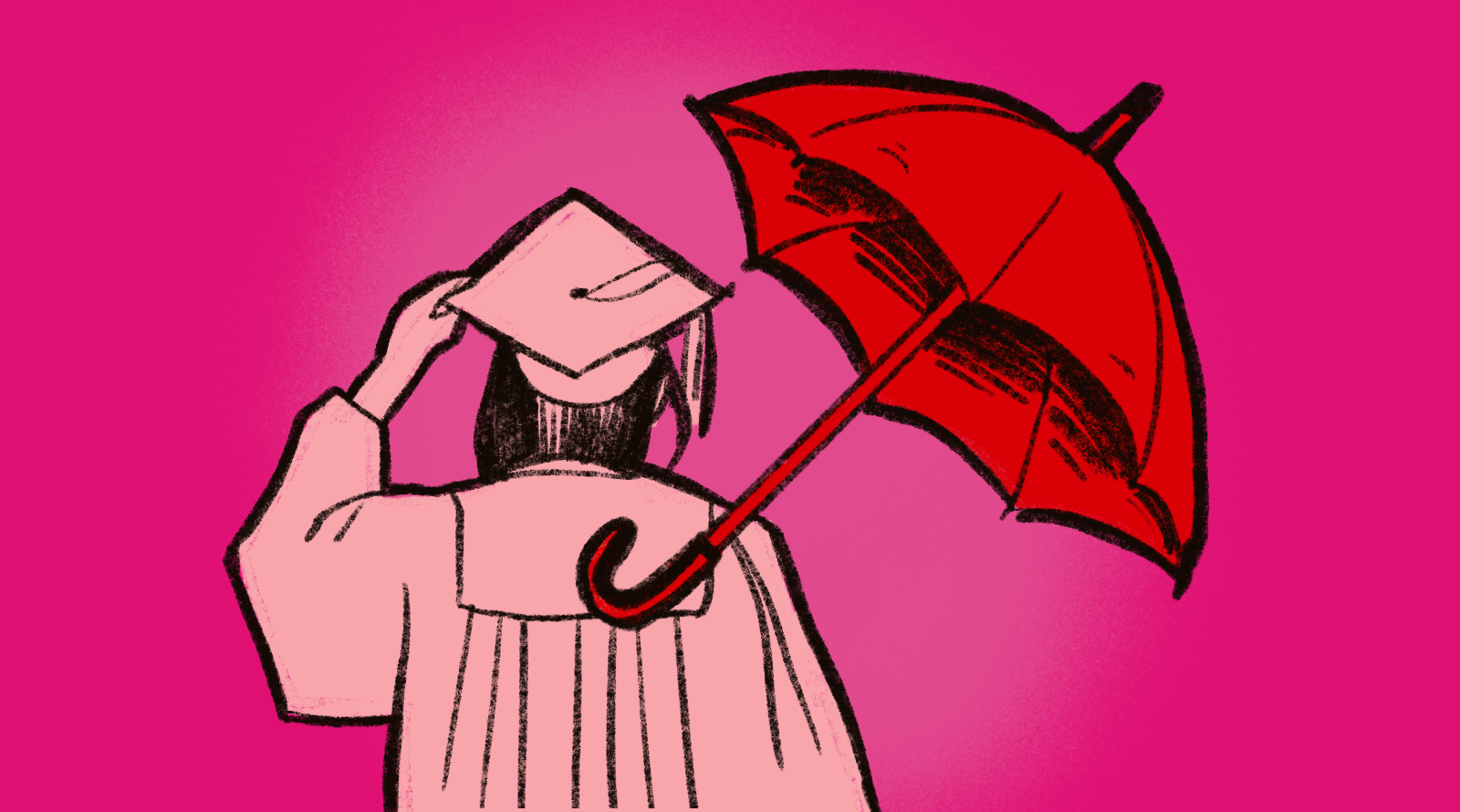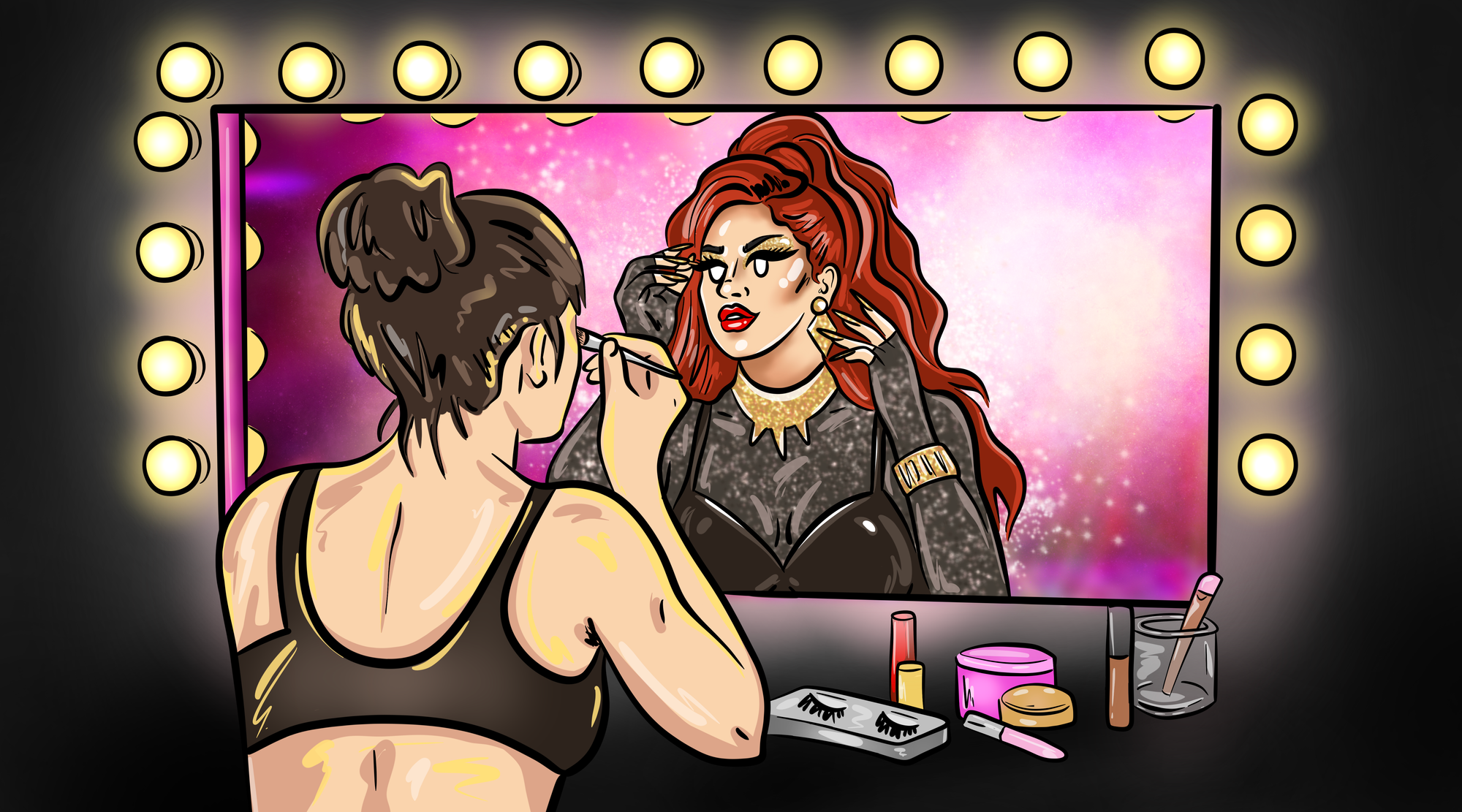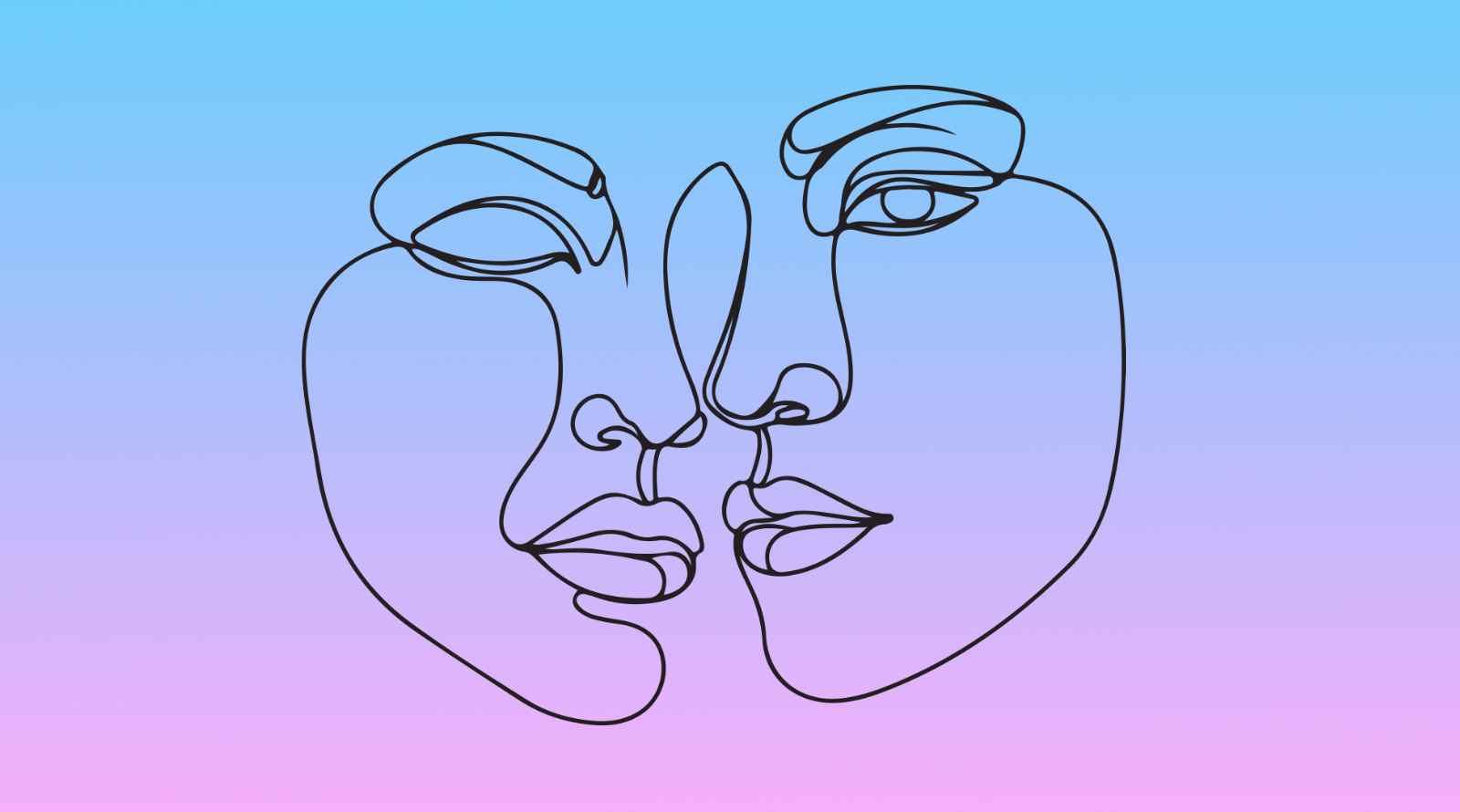It’s been nearly a year since OpenAI unleashed ChatGPT on the world. Within five days of its release, the number of users interacting with the chatbot had already exceeded one million. Today, enormous ongoing traffic routinely sees it at capacity. Social media has been whipped into a frenzy, with endless speculation about the future of AI, its implications for the longevity and security of our jobs, and even what it means to be human.
Which jobs are safe from AI? One that I consistently see missing from the list is sex work.
Sex work’s security has not always been obvious to civvies (non sex workers). The launch of the “original sex robot” Roxxxy in 2010 prompted a decade of hyperbole about the incoming era of the sexbots. In 2014, Pew research predicted robotic sex partners would become commonplace by 2025. Margaret Atwood’s 2015 novel The Heart Goes Last features a protagonist who builds “prostibots” – robots assigned to sex work are core storylines of hit 2010s shows like Westworld and Humans.
Sex workers have largely laughed off the threat of the sexbot – not least, because of the SWERF obsession with them. It’s obvious to us that our job cannot be done by a non-human entity; human contact is an integral part of what most clients are seeking. As Brooke Magnanti once put it in an ITV interview: “If they just wanted an orgasm, they’d have a wank.”
The Body Counts
The isolation so many people experienced during the coronavirus pandemic compounded our understanding of the importance of real human contact. A 2020 article ostensibly about the rise in sex doll sales had to concede the results of an Adult Friend Finder survey in which just 5% of respondents claimed they would buy one. A whopping 62%, on the other hand, instead agreed that “Self-isolation reminds me that there is nothing like the touch of another person. I’ll never get one.”
It helps that human bodies are far more difficult to mimic than human brains. While today’s robots can chit chat, debate politics or beat you at chess, the most sophisticated of robotic faces still induce the heebie-jeebies. Sure, ChatGPT can make compelling arguments, but not from a mouth that you would ever mistake for human.
On some level, this is validating. The activist refrain that ‘Sex Work is Work’ feels bolstered by the relative security of our work, compared to swathes of other jobs. It’s not just work – it’s work that is difficult to automate or innovate away. It requires a human being with a human body.
Unfortunately, this brief ideological victory pales in the face of the palpable economic chaos created by the rise of AI – and the inevitable knock-on effect on the sex industry. AI is already replacing fashion models, copywriters, and helpline operators. It was cited by BT in its announcement of thousands of job cuts this year. OpenAI, the company behind ChatGPT, is currently training its AI models on basic coding and software engineering tasks to replace thousands of jobs.
This is just the beginning. PricewaterhouseCoopers estimates that the current 3% of jobs threatened by AI will grow to 30% in just the next decade. The inevitable human obsolescence and rampant job insecurity already pushing some people into greater financial precarity is only set to increase. And study after study shows what any sex worker will tell you: financial need is overwhelmingly what drives us into the industry. As jobs are decimated by AI, and financial need grows, more people are likely to be pushed into sex work to make ends meet – unless, that is, we start considering a radical paradigm shift. Underpinning all of this chaos is one key problem: capitalism.
Capitalism is a chokehold
Technological innovation is not driven by capitalism, as its supporters claim. Most would-be innovators are denied any such opportunity since capital is concentrated in the hands of a select few, and innovation requires enormous private investment. Protectionists patents also hamper innovation by not allowing existing knowledge and technology to be advanced. Perhaps more importantly, the goals of innovation are fundamentally at odds with capitalism. If work was disentangled from a guarantee of reasonable living standards, we could welcome and enjoy the emergence of new technology. Since we insist on work being a blackmail scheme – that we need to survive with a baseline level of dignity and comfort – we can’t. It’s less, “wow, what are the robots going to be able to do for us?!” and more, “will my job still exist in five years and how the hell am I going to be able to afford to live?!” The problem isn’t the AI that’s going to obliterate human jobs, but a society that requires us to have those jobs to survive.
We’ve had this reckoning before. Throughout the nineteenth and into the early twentieth century, technological advances and automation wiped out the manual jobs that used to dominate the labour market. In 1930, economist John Maynard Keynes made a starry-eyed prediction that citizens of countries like the UK or US would, by the end of the twentieth century, only be working fifteen hours a week. Instead, however, the powers-that-be determined that it was simply unacceptable for people to not work, and orchestrated swathes of new jobs in the administrative sector instead. Between 1910 and 2000, workers in professional, managerial, clerical, sales and service positions tripled to dominate 75% of the total employment market. These largely bullshit jobs reflect the active choice to keep people trapped in the blackmail scheme, beholden to capitalism.
Is history set to repeat itself? As another huge advance in technology looks set to destroy the labour market, it seems likely that a whole new wave of job creation schemes will kick into overdrive. But with an estimated 30% of jobs and a staggering 44% of workers threatened by AI in the next decade, it’s difficult to see how these schemes will be able to keep up, and easy to imagine the millions of people struggling to make ends meet.
The safety net of sex work
Sex workers know this struggle intimately. Poverty and financial need are by far our main reasons for entering the adult industry. It has provided a safety net through the series of economic harms inflicted over the past fifteen years – the global financial crash of 2008, subsequent recessions, the coronavirus pandemic, and the ongoing war in Ukraine. Sex work is not a bullshit job. It has endured through every technological advance in history, and it will endure through this one. But sex workers do not want to see anyone forced to sell sex to survive. The sex industry may be safe from the robots, but none of us are safe from capitalism. No one should be pushed into it to keep a roof over their heads and food on the table. Our society desperately needs an economic paradigm shift that is radical, compassionate and abolishes all survival labour.
Are you a sex worker with a story, opinion, news, or tips to share? We'd love to hear from you!
We started the tryst.link sex worker blog to help amplify those who aren't handed the mic and bring attention to the issues ya'll care about the most. Got a tale to tell? 👇☂️✨





